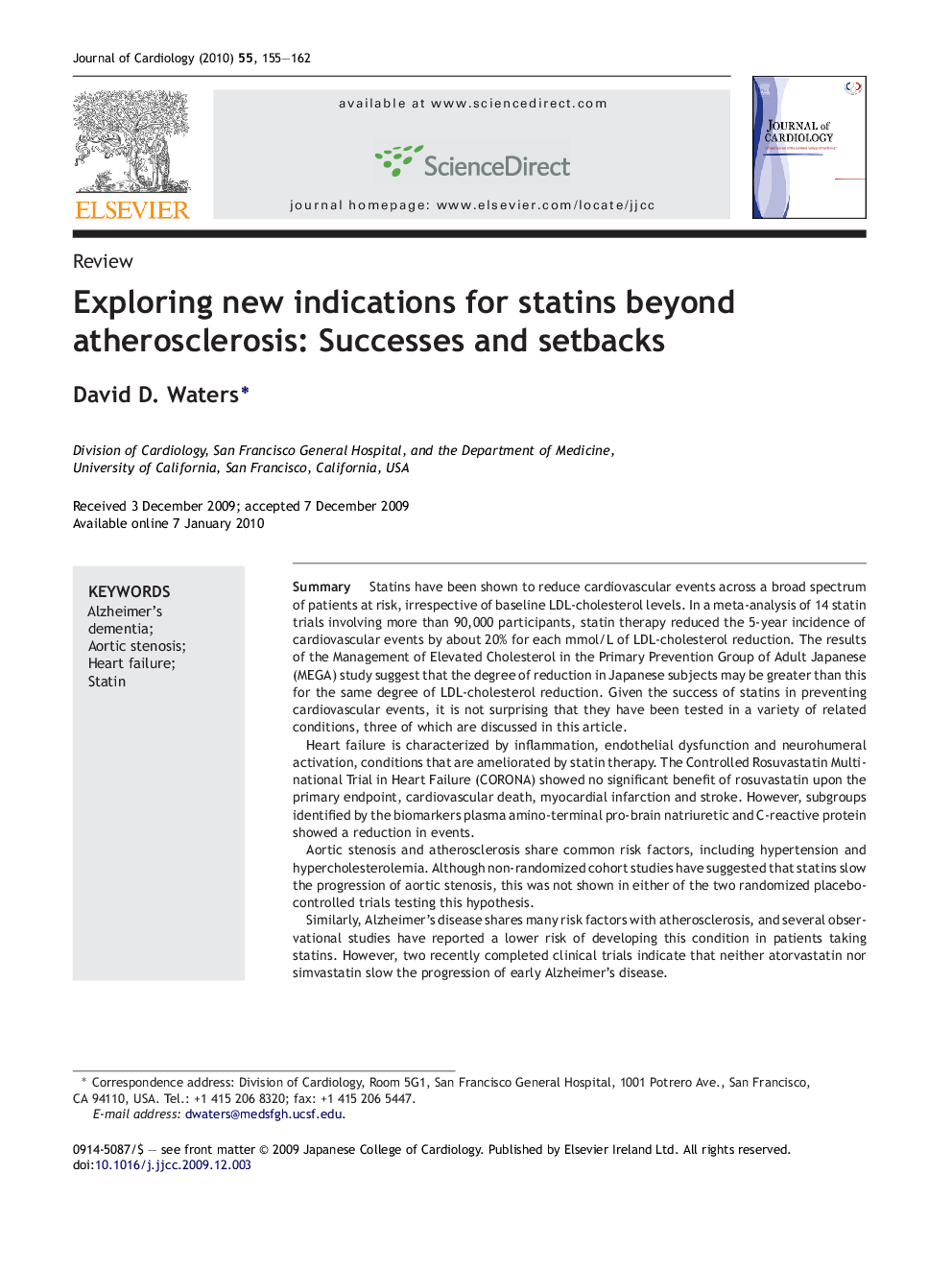| Article ID | Journal | Published Year | Pages | File Type |
|---|---|---|---|---|
| 2963656 | Journal of Cardiology | 2010 | 8 Pages |
SummaryStatins have been shown to reduce cardiovascular events across a broad spectrum of patients at risk, irrespective of baseline LDL-cholesterol levels. In a meta-analysis of 14 statin trials involving more than 90,000 participants, statin therapy reduced the 5-year incidence of cardiovascular events by about 20% for each mmol/L of LDL-cholesterol reduction. The results of the Management of Elevated Cholesterol in the Primary Prevention Group of Adult Japanese (MEGA) study suggest that the degree of reduction in Japanese subjects may be greater than this for the same degree of LDL-cholesterol reduction. Given the success of statins in preventing cardiovascular events, it is not surprising that they have been tested in a variety of related conditions, three of which are discussed in this article.Heart failure is characterized by inflammation, endothelial dysfunction and neurohumeral activation, conditions that are ameliorated by statin therapy. The Controlled Rosuvastatin Multinational Trial in Heart Failure (CORONA) showed no significant benefit of rosuvastatin upon the primary endpoint, cardiovascular death, myocardial infarction and stroke. However, subgroups identified by the biomarkers plasma amino-terminal pro-brain natriuretic and C-reactive protein showed a reduction in events.Aortic stenosis and atherosclerosis share common risk factors, including hypertension and hypercholesterolemia. Although non-randomized cohort studies have suggested that statins slow the progression of aortic stenosis, this was not shown in either of the two randomized placebo-controlled trials testing this hypothesis.Similarly, Alzheimer's disease shares many risk factors with atherosclerosis, and several observational studies have reported a lower risk of developing this condition in patients taking statins. However, two recently completed clinical trials indicate that neither atorvastatin nor simvastatin slow the progression of early Alzheimer's disease.In conclusion, although statins are effective, established therapy for the prevention of vascular events in patients at risk, they have as yet not proven to be successful for these newer indications.
